Recommendation Letter Template for University Applications
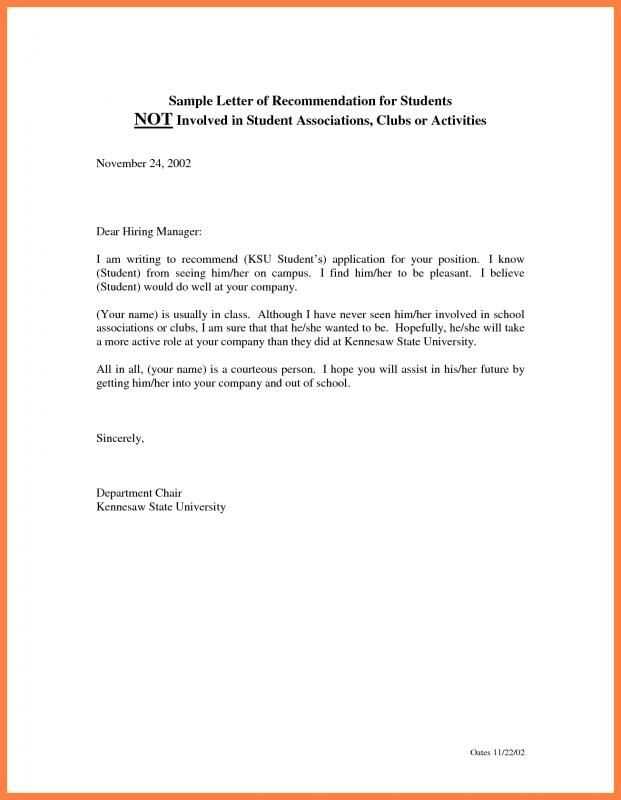
When applying for advanced studies, a powerful endorsement can make a significant difference in how an applicant is perceived. A well-crafted document of support speaks volumes about a candidate’s abilities, character, and potential. It is a key part of the evaluation process and can highlight qualities that other application materials may not fully capture.
Crafting an effective endorsement requires careful consideration of what makes the individual stand out. It is not just a formality, but an opportunity to provide a genuine, thorough, and meaningful evaluation of their strengths and contributions. A clear structure, backed by specific examples, will ensure that the message resonates with the admissions committee.
Getting this right involves knowing what to include and how to present it, ensuring that the document reflects the candidate in the best light while staying true to their qualifications. The goal is to create a persuasive and authentic recommendation that helps to propel the applicant forward in their academic journey.
Essential Components of a Strong Letter
A compelling endorsement document is built upon several key elements that work together to create a well-rounded and persuasive message. Each section should be tailored to effectively communicate the strengths and achievements of the individual, supporting their candidacy in a way that feels authentic and convincing. The inclusion of specific examples, a clear structure, and thoughtful evaluation can elevate the quality of the recommendation and make it stand out.
Key Elements to Include
| Component | Description |
|---|---|
| Introduction | The opening paragraph should establish the relationship between the recommender and the applicant, including the length of time known and the context in which they interacted. |
| Candidate’s Strengths | Specific qualities such as academic ability, work ethic, leadership skills, and character should be highlighted with concrete examples that demonstrate these attributes in action. |
| Specific Achievements | Sharing notable accomplishments and key moments where the individual excelled can provide a more detailed view of their potential and success. |
| Closing Remarks | The conclusion should reaffirm the recommendation, summarizing why the individual is an excellent fit for the opportunity, and expressing confidence in their future success. |
Providing Evidence to Support Claims
It is crucial to support all claims with relevant examples that showcase the applicant’s abilities. Rather than making general statements, the document should reflect real instances that demonstrate why the person stands out among their peers. This not only strengthens the endorsement but also adds credibility to the recommender’s perspective.
How to Personalize Your Recommendation
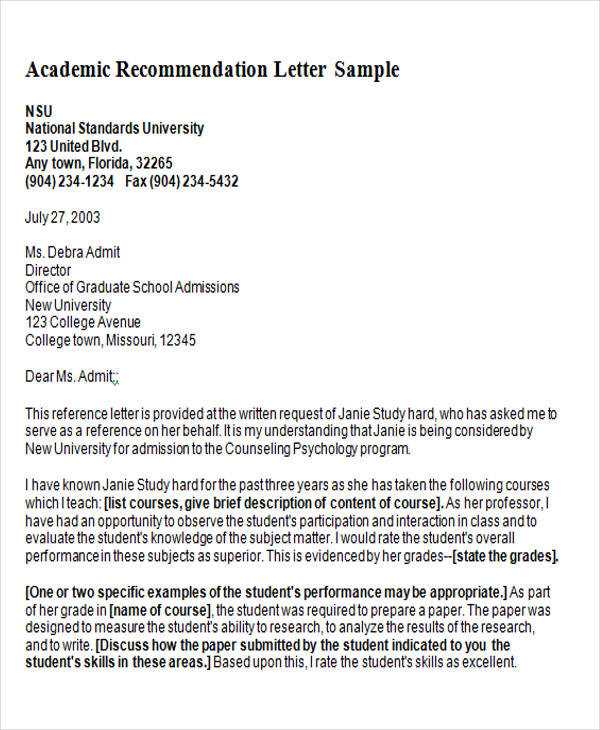
To make your endorsement truly impactful, it is essential to tailor it specifically to the individual you are supporting. A personalized document goes beyond generalities, offering a unique perspective on the candidate’s qualities, experiences, and potential. This level of detail not only reflects your genuine evaluation but also creates a deeper connection with the reader.
Start by focusing on the applicant’s specific strengths that align with the opportunities they are seeking. Instead of relying on broad statements, incorporate particular experiences that highlight their character, abilities, and achievements. Personalizing the content in this way will make your endorsement stand out and help the reader understand why the individual is an ideal fit for the position or program.
Additionally, use a tone and style that reflects your personal relationship with the individual. A formal, yet warm tone will communicate both respect and familiarity, making your endorsement more authentic and persuasive. The inclusion of anecdotes or personal stories can further strengthen your message, adding credibility and depth to the recommendation.
Common Mistakes to Avoid in Letters
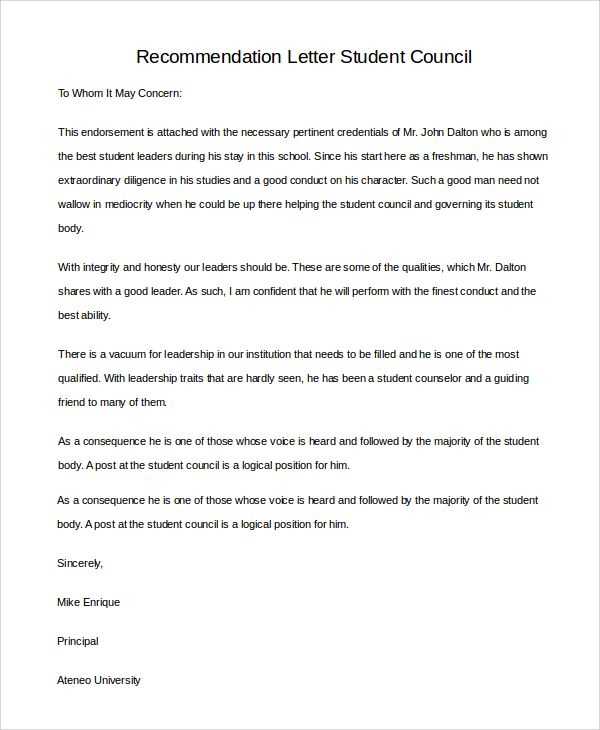
When crafting an endorsement document, avoiding common pitfalls is crucial for ensuring its effectiveness. These missteps can detract from the impact of the message and may undermine the credibility of the support being offered. Careful attention to detail is necessary to create a persuasive and meaningful evaluation.
One frequent mistake is offering vague or overly general statements that don’t provide concrete examples. Simply stating that the applicant is “great” or “hardworking” doesn’t convey the depth of their abilities. Specific, detailed examples help to illustrate these qualities and make the evaluation more compelling.
Another error is failing to maintain a proper tone. The endorsement should strike a balance between professionalism and genuine enthusiasm. Overly casual language or excessive flattery can weaken the overall effectiveness, while an overly formal or detached tone may come across as insincere.
Finally, it’s important to avoid contradictions or conflicting messages. If the document expresses support for the individual but includes mixed signals or vague language, it can cause confusion and lessen the impact of the endorsement. Ensuring consistency throughout is essential to create a cohesive and convincing recommendation.
Structuring Your Recommendation Effectively
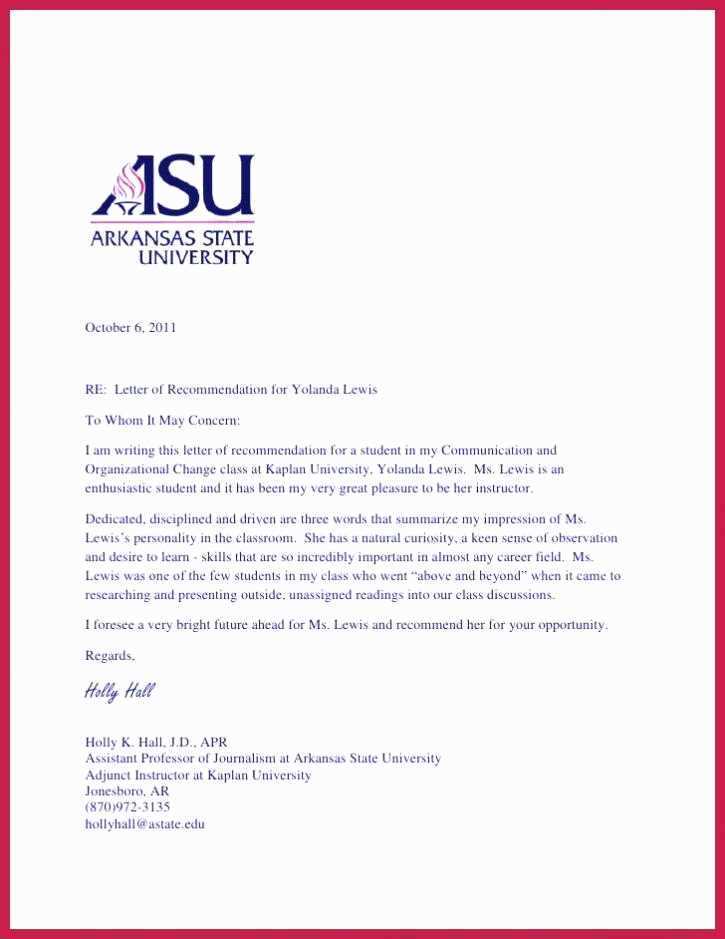
Proper organization is essential for creating a clear, cohesive, and persuasive document of support. A well-structured endorsement allows the reader to easily follow the narrative and better understand the applicant’s qualifications and potential. By maintaining a logical flow and including key sections, you ensure that each important aspect of the candidate’s profile is communicated effectively.
Begin with an introduction that establishes your relationship with the individual. Clearly state how long you have known them and in what capacity. This helps to provide context for the evaluation and lends credibility to your perspective.
The body of the endorsement should focus on the applicant’s key attributes and achievements. Break this section into distinct parts, each focusing on a specific strength, such as academic skills, leadership qualities, or personal character. By separating these attributes, the endorsement will be easier to read and more compelling.
Finally, wrap up with a strong conclusion that reiterates your support and expresses confidence in the individual’s future success. This final statement should leave a lasting impression, reinforcing why the applicant is well-suited for the opportunity they seek.
Choosing the Right Recommender for Success
Choosing the appropriate person to provide a supportive evaluation can make all the difference in the success of an application. The right recommender will offer an insightful and credible perspective, highlighting the applicant’s strengths and experiences in a compelling way. It is essential to carefully consider who is best suited to speak to the applicant’s qualifications and character.
When selecting a recommender, keep the following points in mind:
- Expertise and Relevance: Choose someone who knows the applicant well and is familiar with their work or accomplishments. A recommender who can speak to specific achievements will carry more weight than someone with a more general relationship.
- Credibility and Reputation: The standing of the person providing the endorsement can significantly impact its influence. A respected individual in the field can lend additional authority to the evaluation.
- Ability to Provide Specific Examples: A strong recommender is one who can provide concrete examples of the applicant’s abilities, showcasing their contributions and achievements in detail.
Additionally, consider the relationship between the recommender and the applicant. Ideally, the recommender should be someone who can speak to the individual’s personal and professional qualities, offering a balanced perspective on their character and capabilities.
Tips for Writing a Persuasive Endorsement
Crafting a convincing and impactful endorsement is key to influencing the decision-making process. A strong endorsement not only highlights the candidate’s qualifications but also paints a vivid picture of their potential. Achieving this requires attention to detail, clear structure, and a thoughtful approach to the content.
Focus on Specific Achievements
Rather than using generic phrases, center your endorsement on specific accomplishments that demonstrate the applicant’s skills and abilities. By citing particular examples of their work, leadership, or character, you provide concrete evidence that adds credibility to your message. This makes your endorsement far more persuasive and memorable.
Maintain a Balanced Tone
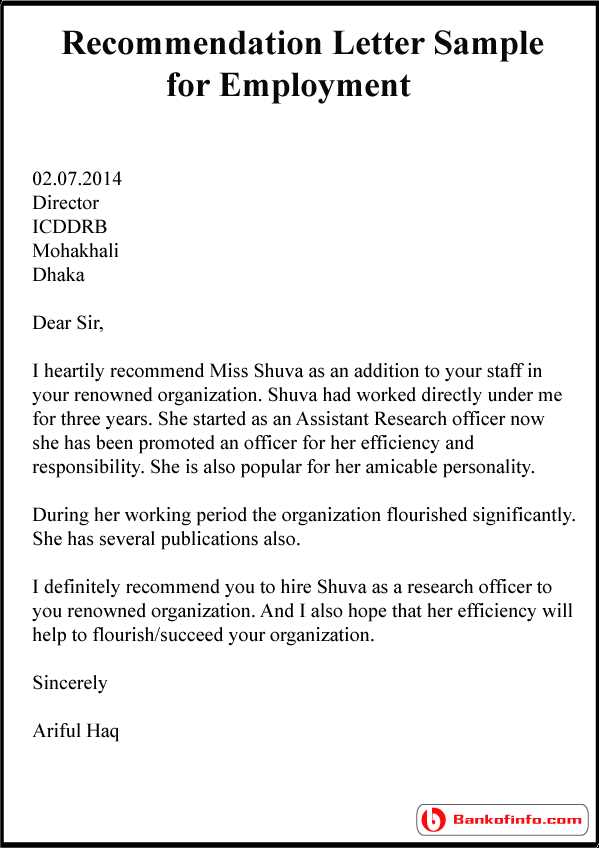
While enthusiasm is important, ensure the tone remains professional and measured. Avoid overly casual language or excessive praise that could undermine the seriousness of your message. A balanced approach will convey your genuine support without appearing insincere or exaggerated.
By following these tips, you can write an endorsement that effectively communicates the candidate’s strengths and leaves a lasting impression on the reader.